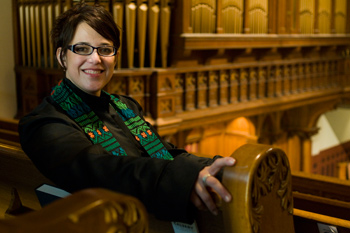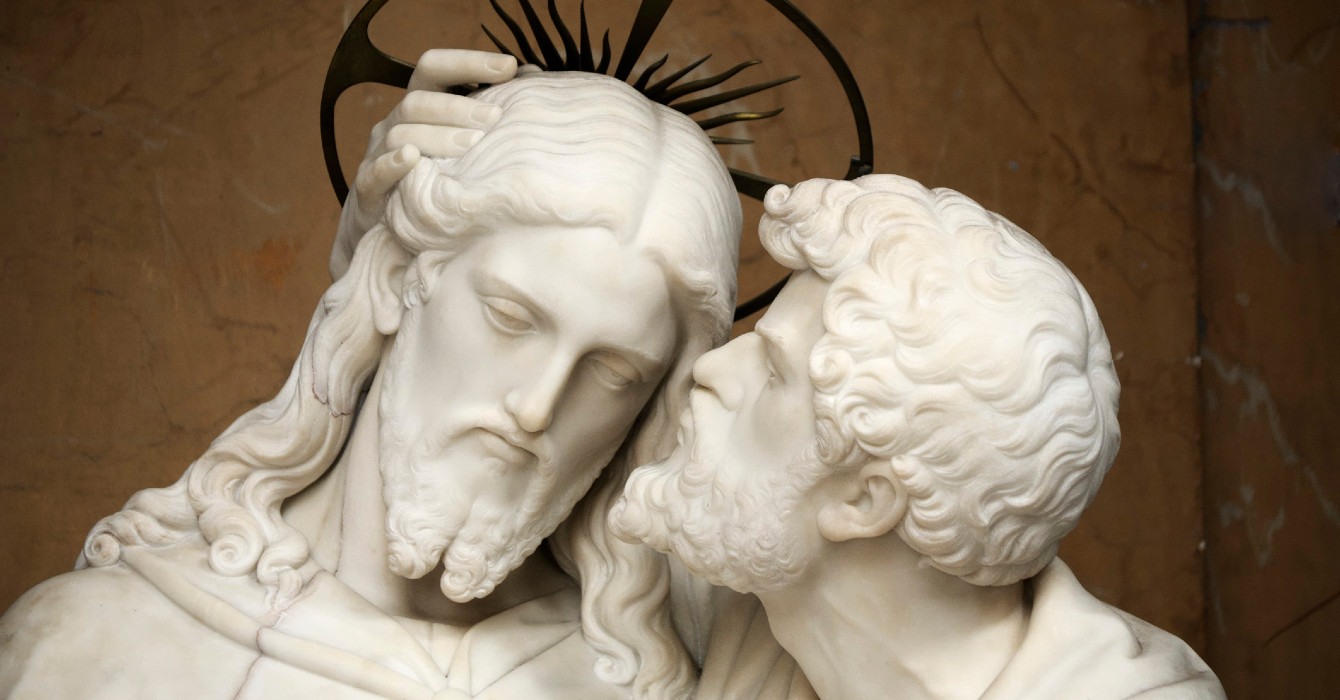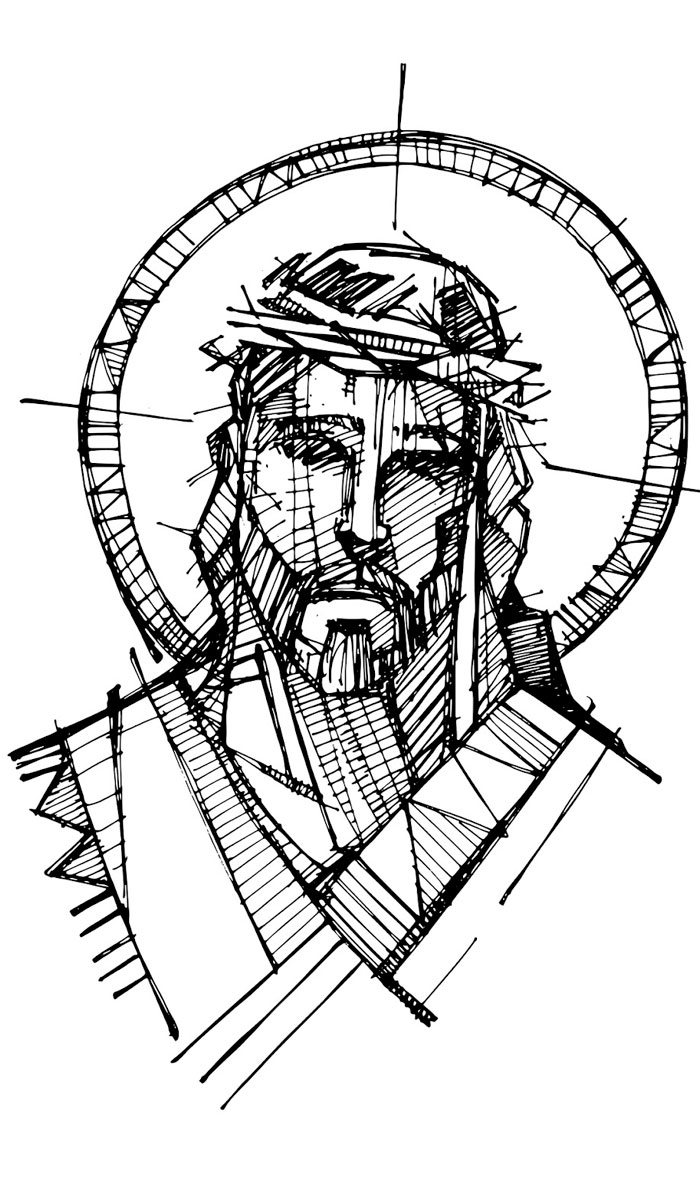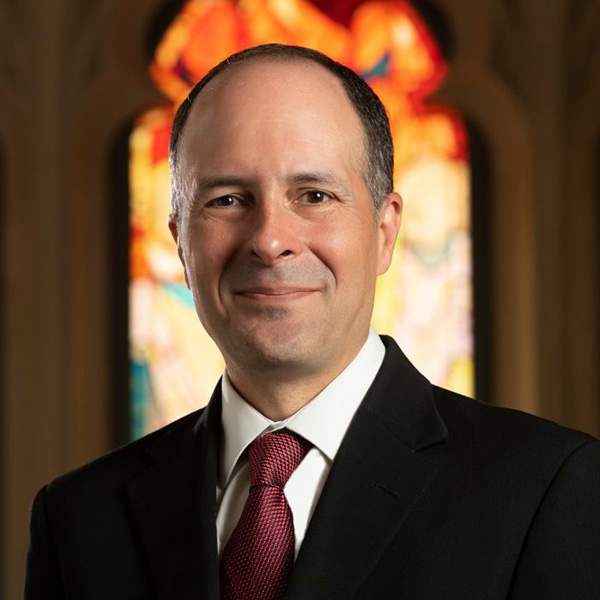Editor’s note: Faith & Leadership offers sermons that shed light on issues of Christian leadership. This sermon was preached on March 21, 2008, at Calvary Baptist Church in Washington, D.C.
I had the strangest experience just a few weeks ago.
I’d been asked to participate in the funeral of a woman I did not know well; she grew up at my church, Calvary, and I knew her family from a couple of chances we’d had to be together. As this woman lived near Virginia Beach, she attended another church, but she was buried here in town, and it was my honor to be invited to participate in her funeral.
The day was just glorious -- bright sun and cool, crisp air. There were flowers covering the grave site and a bagpiper playing “Amazing Grace.”
What a way to go!
After the service I stayed for a while to talk with her family, most especially her three daughters, all of whom cared for their mother in her final illness and were with her when she died.
The youngest daughter caught me first: she said she really wanted to tell me about the night her mom died. She explained how the whole family was gathered around her mother’s bedside and how as they saw their mom’s breath becoming more and more shallow, she felt compelled to tell her mom it was OK to go. She told me with tears in her eyes that her mother looked at her, like she was asking for permission, then took a deep breath, almost like a sigh of relief, and died quietly.
Hearing this beautiful story made me emotional. I was wiping away tears, in fact, when I bumped into another of the woman’s three daughters. As we exchanged pleasantries, she said, “You know, we were all with Mom when she died.” I told the woman that, yes, I had just heard about that experience.
The woman went on to tell me that when it became clear that her mom’s breathing was getting more labored, she had been able to pull out a bunch of lavender, grown on her own organic farm. She crushed some of it with her fingers and let her mother breathe in the calming fragrance of the lavender, and it seemed to help her slow down and take a few final breaths before dying. It meant so much to this woman to participate, to be there and to help her mom take this step.
Well, that was kind of touching, too, but I sort of left that conversation scratching my head, when -- you guessed it -- I ran into the third and final daughter, who told me her mom was finally able to take her last breath when the grandchildren came in and sang her a lullaby.
I was baffled. All three of them lived through the same experience, and all three of them remembered it differently. Really differently.
I thought about this experience when I started thinking about Good Friday and looking at the Gospel narratives about Jesus’ last hours on the cross.
Did you know they are all different?
Of course, we don’t know exactly who was there when; we do know the disciples were scared for their lives and certainly incognito, if they were there at all. So whether they actually watched Jesus die and listened to his last words or whether they heard secondhand the accounts from the women who knelt at the cross, each of the four Gospel writers records the story a little differently. And while all four of them tell of Jesus’ final hours and three of them let us know that he cried out in a loud voice before he took his final breath, it’s only Luke who tells us what Jesus said when he cried so loudly. Do you remember?
“Father, into your hands I commit my spirit.”
And then, Luke says, Jesus breathed his last.
Now, you and I might recognize those words -- the psalmist uses them in Psalm 31, and it’s likely we’ve heard them in the context of worship other times during the year, not just Good Friday. Yes, we might recognize them, but the folks standing around Jesus’ cross that day would certainly have recognized those words.
See, the phrase “into thy hands I commit my spirit” was used by religious Jews every single day of their lives. It was the prayer they prayed every night, the last thing that left their lips before they closed their eyes, comforting and familiar words that led them to rest. It was the kind of phrase you could recall without any conscious thought, it was so ingrained in your psyche.
Do you know what I’m talking about?
I have this childhood memory that goes back as far as I can remember and echoes through the years when my four younger brothers and sisters were babies. I can remember my mother’s voice ringing through the house as she rocked whichever one of us was the baby to sleep. She’d sing a song over and over, her voice getting quieter as sleep came on: “Jesus, tender Shepherd, hear me, bless thy little lamb tonight; through the darkness be thou near me, keep me safe till morning light.”
I will be able to recall that song all my life long, and when I hear it or sing it, there is a peace that floods over me, and I can feel my mother’s arms around me, the steady rhythm of her rocking, the warmth of her embrace, and that utter feeling of safety, of knowing that now it’s OK to go to sleep because here I am, being held safe by my mom.
This was the kind of thing Jesus was calling to mind as he cried out in a loud voice: “Father, into your hands I commit my spirit.” And I have to say, to everyone standing there, it must have seemed totally out of place.
In the deepest moments of anguish, with the darkness of the sky casting shadows everywhere, with doubt and grief and regret washing over everyone -- not just Jesus -- those words must have seemed so strange.
Maybe that’s why some of the Gospel writers left them out. Maybe they thought Jesus was just delirious with pain; maybe they thought he didn’t know what he was saying.
But, you know, maybe he did.
Today, as the darkness descends again on you and me, I tell you, I’m glad Luke remembered to tell us these words of Jesus, because it seems to me that Jesus, bloody and gasping for air, writhing with pain, gave us the most amazing gift when he spoke these words.
Yes, in the middle of the deepest human darkness we could ever experience, our Savior spoke firmly and forcefully -- loudly, Luke says -- these words of utter comfort and ultimate love. He spoke them in forceful defiance of the despair and hopelessness that haunted his final hours. He would not give in. He would not let despair be the final word. He would choose where he would place his life, and he chose to place everything he had left into the hands of God.
Let’s not kid ourselves. There was nothing pretty about what Jesus went through.
All of his friends had just let him down; surely the memory of Judas’ kiss or Peter’s denial ran like a tape over and over in his mind.
He’d just been forced to look straight into the face of gut-wrenching fear, and it scared him so badly that he sweated with utter anxiety, taking shallow breaths and trying for the life of him to keep it together.
He’d knelt in the garden alone, talking to God and begging. Please, could there be another way to walk through this?
He’d hung on the cross and uttered -- as Matthew and Mark report -- his sinking suspicion that God had abandoned him and that he was all alone.
After these things ... after all of these things, then, Jesus does the most incredible, faith-filled thing: he struggles to suck in one last breath and calls out words of comfort and peace. These final words -- Jesus cried them out, and when he did, he spoke defiant hope into dark despair.
On Aug. 14, 1982, Todd Weems was out on the town celebrating his 21st birthday. It was just after midnight when he left the restaurant to head home. As he was leaving, he noticed, out of the corner of his eye, a group of men beating a homeless man in an alley on the side of the restaurant. Without much thought, he ran over to try to help, and in the moments that followed it was Todd who was brutally murdered, just an hour after he turned 21.
It’s a tragic story any way you tell it, but to make the aftermath even harder, you should know that Todd’s mother, Ann Weems, is a prolific writer and noted theologian. Faced with the senseless pain of her son’s death, she spent night after sleepless night filled with anger at the God she’d served all her life, who, as far as she could see, had completely abandoned her to utter darkness. Out of this experience came her book “Psalms of Lament,” where she somehow found the courage to write these words:
In the godforsaken, obscene quicksand of life,
there is a deafening alleluia
rising from the souls
of those who weep,
and of those who weep with those who weep.
If you watch, you will see
the hand of God
putting the stars back in their skies
one by one.
I don’t know just how Ann Weems summoned the courage to write these words of hope into the dark abyss of her situation. I think it might be possible that she remembered a Savior who had also suffered those feelings of betrayal and hopelessness and chose, instead of surrendering to the darkness, to instead defiantly place everything he was into the hands of God.
Me? I suspect I might have gotten stuck at “My God, my God, why have you forsaken me?”
But on this day, a day of darkness devoid of hope, I want to say, “Thank you, Luke, for reminding us that Jesus didn’t.”
Somehow. Somehow he managed the simple act of declaring the ridiculous -- a prayer of comfort and peace into despair and death. Jesus turned his back on the darkness, resolutely collected the shreds of his very life, and laid them down in the one place he’d learned to believe in from the time he was a baby -- into the hands of God.
Friends, on this, the darkest of days, we hold close this miracle of God with us. As darkness falls and all is lost, as our souls crumble and our hearts break, we are handed the memory of a Savior who leaned over into the void of the darkness and refused to give in to despair.
And as we stumble our way through this day and through the pain of our human lives, often unable to see through the darkness, we can, too. We can take whatever is left of our lives and place it right into the hands of God, an utterly defiant, totally revolutionary act of faith:
“Through the darkness be thou near me ...”
“Now I lay me down to sleep ...”
“Keep me safe till morning light.”
“Into your hands I commit my spirit.”
Amen.














